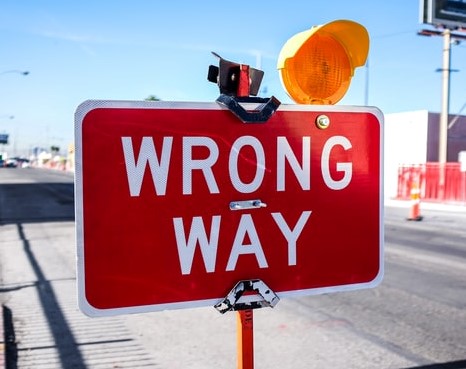2 min read
We Don’t Keep Client Personal Info, So We Don’t Need Cyber Coverage, Right? Wrong!
Lawyers often share with us that, as they see it, they really don’t need a cyber liability policy. They seem to base this conclusion on the fact...
We've crafted solutions tailored to your firm
The world of insurance for law firms can be confusing, and difficult to navigate. We've created this glossary because these common insurance terms should be easy to understand.
2 min read
 Mark Bassingthwaighte, Risk Manager
:
Mar 21, 2018 12:00:00 AM
Mark Bassingthwaighte, Risk Manager
:
Mar 21, 2018 12:00:00 AM

Some will find it difficult to swallow; but there may be potential conflict traps hiding somewhere on your network, particularly if you practice at a firm that keeps a digital copy of everything everyone does at the firm. Consider the following hypothetical. Six months ago, one of the partners at a small firm decided to make a lateral move and he took his long-term clients with him, to include Ms. Smith. While the appropriate files were transferred at that time, this firm still maintained digital copies of those files or portions of those files on the server, in the cloud, or perhaps on various backups. Now fast forward to today. An associate at this firm wants to take on a new matter and Ms. Smith happens to be the adverse party. The good news is that this new matter is not substantially related to any work done for Ms. Smith by the former partner before he departed. Can the associate take this new matter on?
Thinking about what ABA Model Rule 1.10, the imputed disqualification rule, says, it’s tempting to immediately say yes. The rational being that according to this rule, it would be permissible for the firm to take on clients with interests that are materially adverse to Ms. Smith as long as any new matter is not the same or substantially related to any matter handled for Ms. Smith by the former partner prior to his departure. The problem with this line of thinking, however, is that it overlooks Rule 1.10(b)(2) which would prohibit the representation if “any lawyer remaining in the firm has information protected by Rules 1.6 and 1.9(c) that is material to the matter.” [Emphasis supplied.] In short, it’s all about loyalty. Lawyers are not to use confidential information obtained from a former client to this former client’s disadvantage in any subsequent adverse representation regardless of any given lawyer’s departure.
Thinking about the what Rule 1.10(b)(2) says, and for simplicity’s sake, let’s assume no one other than the former partner ever did any work for Ms. Smith, the question becomes this. Do any of the digital copies of any and all file material of Ms. Smith still maintained by the firm contain any confidential information that could be used to Ms. Smith’s disadvantage, and if so, is that information accessible by any of the firm’s remaining lawyers? If the answer to this question is yes, then a conflict problem in the form of a disqualification motion may be waiting in the wings if the associate takes the new matter on.
My purpose here is not to opine on what types of file material should or shouldn’t be kept. I’m simply pointing out that decisions to maintain digital files that are kept in multiple places and backed up multiple times has consequences. Fortunately, with awareness of the issue comes an opportunity to address the problem. For example, in order to survive a disqualification motion, one workaround for this firm might be to make any concerning digital file material of Ms. Smith inaccessible by having a staff person or someone in IT support quarantine or destroy it. Of course, best practices would dictate that this step occur at the outset of the problematic representation. The firm’s argument would be that their prompt action was the equivalent of finding a duplicate of Ms. Smith’s paper file at the firm and sequestering it, delivering it to the former partner, or destroying it via shredding or incineration. Solutions along this line seem like a no brainer if you ask me.
Since 1998, Mark Bassingthwaighte, Esq. has been a Risk Manager with ALPS, an attorney’s professional liability insurance carrier. In his tenure with the company, Mr. Bassingthwaighte has conducted over 1200 law firm risk management assessment visits, presented over 600 continuing legal education seminars throughout the United States, and written extensively on risk management, ethics, and technology. Mr. Bassingthwaighte is a member of the State Bar of Montana as well as the American Bar Association where he currently sits on the ABA Center for Professional Responsibility’s Conference Planning Committee. He received his J.D. from Drake University Law School.

2 min read
Lawyers often share with us that, as they see it, they really don’t need a cyber liability policy. They seem to base this conclusion on the fact...

2 min read
In the good old days, plaintiff lawyers hoping to find a few new clients would place ads on billboards located near hospitals. From an ethical...

3 min read
When it comes to problem clients, we all have a story or two to share; but what if it becomes more than that? What if a lawyer comes to realize that...